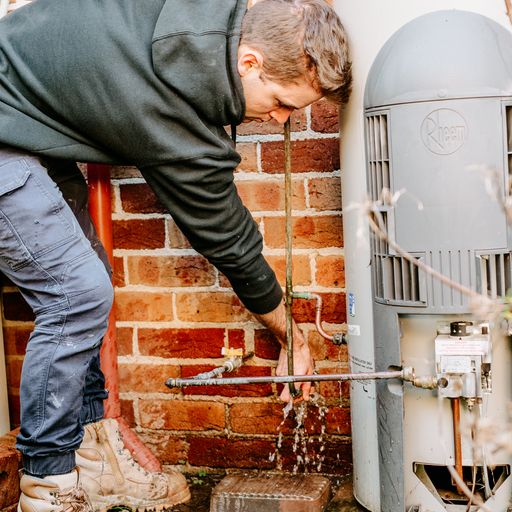Are you struggling to decide between a gas and electric hot water system for your home? It’s a vital choice that impacts your comfort, energy usage, and utility bills. In this detailed guide, we will examine the pros and cons of gas and electric hot water systems, helping you decide for your specific needs. We’ll also discuss the factors to consider when choosing a hot water system, energy efficiency, and the best options for different households.
Gas Hot Water Systems
Advantages
- Faster Heating: Gas systems typically heat water more quickly than electric systems, reducing wait times for hot water.
- Lower Operating Costs: Natural gas prices are often lower than electricity prices, making gas hot water systems more economical to run.
- Uninterrupted Supply: Gas systems continue to operate during power outages, ensuring a consistent supply of hot water.
Disadvantages
- Higher Initial Costs: Gas systems generally have higher upfront costs due to venting and gas line installation requirements.
- Carbon Emissions: Gas hot water systems produce greenhouse gas emissions, contributing to climate change.
- Maintenance Requirements: Gas systems need regular maintenance and servicing by a qualified technician to ensure safety and efficiency.
Electric Hot Water Systems
Advantages
- Lower Installation Costs: Electric systems are usually cheaper to install, as they don’t require gas lines or venting.
- Easier Maintenance: Electric systems typically have fewer maintenance requirements, saving you time and money.
- Environmentally Friendly with Green Energy: When paired with solar panels or green energy plans, electric hot water systems can be a more eco-friendly option.
Disadvantages
- Higher Running Costs: Electricity prices are generally higher than gas prices, leading to increased ongoing operation costs.
- Slower Heating: Electric systems take longer to heat water, which can be inconvenient during peak usage times.
- Vulnerable to Power Outages: Electric hot water systems won’t function during a power outage, leaving you without hot water.
Factors to Consider When Choosing a Hot Water System
- Energy Efficiency: Look for systems with high energy efficiency ratings to reduce energy consumption and lower your utility bills.
- Installation Costs: Consider the installation costs, including any necessary venting, gas lines, or electrical upgrades.
- Running Costs: Compare the ongoing operating costs of gas and electric systems based on local energy prices.
- Environmental Impact: Evaluate the environmental footprint of each system, including greenhouse gas emissions and the potential for green energy integration.
- Maintenance Requirements: Determine the maintenance needs of each system, including regular servicing and potential repair costs.
- Hot Water Demand: Assess your household’s hot water usage patterns and choose a system that meets your needs without wasting energy.
FAQs
Q: Are gas hot water systems more energy-efficient than electric ones?
A: Gas systems often have higher energy efficiency ratings, but electric systems can be more eco-friendly if paired with solar panels or green energy plans.
Q: Can I switch from a gas to an electric hot water system, or vice versa?
A: Yes, you can switch between systems, but consider the costs of installing new gas lines, venting, or electrical upgrades, as well as the potential benefits of each system type.
Q: How do I switch to a solar hot water system?
A: To switch to a solar hot water system, you’ll need to install solar panels or a solar collector, a heat exchanger, and a storage tank. Consult a solar energy specialist to determine your home’s right size and configuration and assist with installation.
Q: Which hot water system has a longer lifespan: gas or electric?
A: Both systems have similar lifespans, averaging 10-15 years. However, the lifespan of your hot water system will depend on factors such as usage, maintenance, and water quality.
Q: How do I determine the appropriate size for my hot water system?
A: To determine the right size for your hot water system, consider the number of people in your household, the number of fixtures that require hot water, and your peak water usage times. A professional plumber or hot water system provider can help you make the right decision based on your specific needs.
When choosing between gas and electric hot water systems, it’s essential to consider factors such as installation costs, energy efficiency, running costs, environmental impact, and maintenance requirements. Both systems have their pros and cons, so weigh your options carefully to find the best solution for your home. Armed with the knowledge provided in this guide, you’ll be well-prepared to make an informed decision about which hot water system best suits your Australian home.

